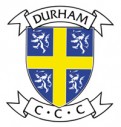Jonathan Trott: The making of a legend?
Peter Blackburn |
Growing up in Cape Town, one of the most beautiful urban landscapes in the world, putting down roots in the Midlands county of Warwickshire, and joining the World’s best batsmen at the top of the international rankings; Jonathan Trott has evolved from a much travelled batsman to a prospective legend in England whites in recent months.
Trott is of the finest cricketing pedigree with various ancestors having played international cricket, although no one seems to know quite how the Trott ancestry fits together. Following in the footsteps of such great lineage, Trott’s brother has also represented the Netherlands and Western Province. Despite representing South Africa at youth levels up until the under 19’s side, Trott who possesses a British passport elected to try his hand at county cricket and looked to represent England rather than his birth country.
Finding himself a place to settle at Warwickshire, Trott was known in his youth there as something of a precocious batsman. Ruthlessly selfish and relentlessly frustrated, Trott was forced to grow up when he started a family with the club’s press officer, Abi Dollery. Not only did his family life have a great influence on Trott’s, but the arrival of former England international, Ashley Giles as head coach is attributed with bringing the best out of the South African born batsman. Settling down and beginning to show his best, Trott averages over 45 in first class cricket, as well as topping the domestic averages for both List A and twenty 20 cricket.
One day, when the biographers get their claws into Jonathan Trott’s career, as no doubt will be the case given his current standing in the game, they will look back at the summer of 2009 as the turning point, the moment when everything began to so smoothly fall into place. England were struggling to show their best against Australia in the 2009 Ashes; players out of form, the guile of Ben Hilfenhaus proving more than adequate incision in English conditions, and a batting line up that far from guaranteed success. So many players had attempted to set up camp at number three in the England line-up; Bell, Pietersen, Bopara, Shah. All had shown glimpses of promise, but in truth none of them belonged at number three, none of them had the mentality, the specific and versatile technique and mental capacity.
With the national media clamouring for the return of a hideously out of form and in his own words “shot” Michael Vaughan, and the even unlikelier swansong for Marcus Trescothick, a viable alternative had to be found and the board of selectors pulled their finger out. Given that Trott was, at this point, averaging 97 in first class cricket for Warwickshire, one could be forgiven for presuming that this was an easy decision, but the trials and tribulations of the problem of number three had laid deep worries in the England camp and full homework was done on the prospective introduction. England’s work was good, and soon they would see, Trott’s was also.
I was at the Oval in 2009 when Trott made scores of 41 and 119 to win the Ashes for England. I still remember everything about that day, the sense of anticipation, the nerves, the hope and the joy; a day that affirmed everything that I love about cricket, this was my day, it was the crowd’s day, and it was Trott’s day. Supplementing other heroic displays like that of Andrew Flintoff, Trott immediately became a vital part of the team, and in the cauldron of pressure that the final test in an Ashes series doubtless is, Trott excelled, showing exactly the sort of mentality that England need to be able to rely on at number three. Following from his Ashes success, Trott went on to have a highly successful time in both South Africa and Bangladesh as part of a touring England squad.
The riddle of the Number three batsman is a topic that has been talked, and written to death in recent years. As with so many things, it is one of those positions where you only realise how difficult it was when your successful incumbent has gone. With Michael Vaughan’s injury, loss of form and physical and mental downturn, England had a huge gap to fill. Vaughan was such a dependable and impressive cricketer that the riddle of number three rarely reared its head before his departure. The main problem with the position of number three is that to successfully fill it, you need the complete batsman; able to act as supplementary opener should a quick wicket go down, able to bat through the innings should all be falling around him, and able to lift off and pile on the runs at reasonable pace if the openers have nearly completed a good job. The number three must be able to intuitively grasp and understand his situation, judge the best action, and ensure that it is carried through however necessary or appropriate; Jonathan Trott is this man.
Not only has Trott come at a wonderful time for England in giving long term stability to the side at number three, but the timing of his arrival has tied in perfectly with the departure of Paul Collingwood. Whilst his batting form had been sketchy at best for a good while prior to his test departure, Collingwood was still looked to in the England dressing room as the go to man when wickets were falling and the opposition was on a high. Collingwood was the immovable rock who by any means necessary would cling on and never give up his wicket. In Trott, England have been fortunate enough to find a ready made replacement for Collingwood; another man who can be relied upon in much the same manner.
Another in the seemingly endless strings to Trott?s bow comes in his striking ability in the one day game. Up until fairly recently I had somehow continued to manage to convince myself that Trott could not possibly be a progressive one day batsman, but his averages and results offer never ending argument for his cause. Convincingly one of the best one day batsmen in the world on current form, Trott has brought new purpose to the shorter format, and his ability to bat through could be relied on ever more with the departure of Andrew Strauss from this form of the game. Even as I am writing this article Trott just seems too good to be true.
The coming years will quite possibly see the emergence into the one day and Test sides of a host of fantastically promising young batsmen currently going about their work in the County Championship and England Lions tours. The likes of Lyth, Vince, Taylor, Bairstow and Hales, with many offers in tow will be pushing harder than ever for inclusion; the sort of pressure that can only reap dividends for the England set up on the whole. Jonathan Trott could play a vital role in bringing these youngsters through and providing a platform for them to play their shots without fear of reprisal.
I appreciate it has taken me quite some time to get to the crux of this article, seeing England’s number three in a different light, as Jonathan Trott; The legend. I have little doubt that the England Cricketer of the year 2011 who has driven his way to the top of the global performance charts with 2246 Test Match runs at 68.06 could find himself being talked about in exactly these terms. Alongside Pietersen, Morgan, Bell and most predominantly perhaps, Alistair Cook, Jonathan Trott has a sublime chance to attack many records and to become the strongest batsman in Test cricket. Of all batsmen to have played 20 Tests, Trott has the second highest average. Trott’s success speaks volumes about his ability and mentality, and if he can successfully ride out and improve on any glitches that will invariably take place at some point in the coming years, then Trott has the potential to become nothing short of an England legend.
For those who perhaps think that my support and admiration for Trott is too glowing, it is not only his on field performances that lead me to believe that he may be remembered for decades to come. During this year’s world cup, the England squad was invited to attend the high commissioners party in Chennai. Showing the utmost respect and reverence to the game and the characters involved, Jonathan Trott was the only man to attend. Neither ability, nor success have changed or tainted Jonathan Trott; his character shines strongly in this England side, and we should all count our blessings for his position in the team, and in International cricket.
Follow me on twitter @petermblackburn





Very interesting piece.
The only thing I would note is that Trott made his debut batting at five. He’s batter three ever since though.
Comment by GeraintIsMyHero | 12:00am BST 27 June 2011
Not to be pedantic but It says Trott has 2246 Test Match runs at 68.06?
Cricinfo says he has 1867 runs @ 62.23 after 34 innings, so he’s behind Hussey in speed to reach 2000 runs (he took 33 innings) and will need at least 133 runs in his next 2 innings to make the all-time top 10…which could be considered legend status as Viv Richards, Worrell and Weekes all did it in 36 innings 🙂
Comment by aussie tragic | 12:00am BST 27 June 2011
That piece was written during the England-Sri Lanka Test series, so Trott’s average won’t be quite as high as it was a couple of matches ago.
Edit: Ah, I see. Perhaps Peter has miscalculated.
Comment by Howe_zat | 12:00am BST 27 June 2011
a good read.
feel that he will end up being a very good batsman rather than a legendary one by the time his career is done, with a career average in the mid to late 40s.
am still hoping for pietersen to get his act together consistently and bump his average above 50.
Comment by hang on | 12:00am BST 27 June 2011